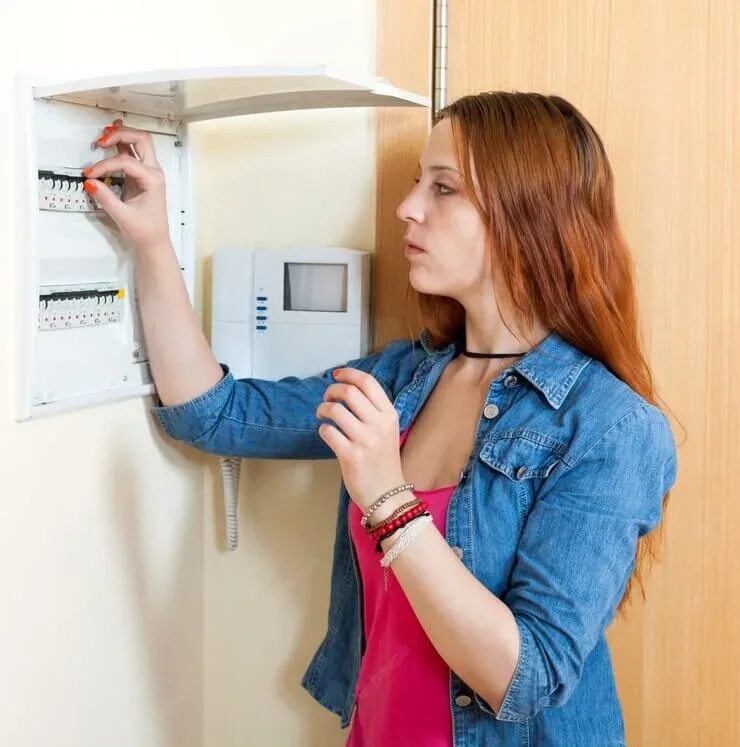Experience the benefits of upgrading your HVAC system, which can significantly enhance home comfort, reduce energy costs, and improve overall well-being. Newer HVAC systems are designed with advanced filtration technology to remove airborne particles from circulated air. This helps reduce dust, pollen, and other allergens for better health and breathing comfort. Additionally, many newer models offer humidity control features that maintain ideal moisture levels indoors without additional equipment or cost.
Today’s modern units use far less electricity than their predecessors while providing superior heating and cooling capabilities. This means lower monthly utility bills and reduced environmental impact due to fewer emissions released into the atmosphere. In this article, I will discuss three key advantages of investing in a new HVAC system that you should consider before making any decisions.
Every modern home or business needs some form of heating, ventilation, and air conditioning (HVAC) to maintain optimal temperatures throughout all seasons. This kind of technology controls the amount of heat and cold within the building by using fans, pumps, ductwork, and other equipment to regulate humidity levels and keep indoor temperatures consistent regardless of external conditions. In essence, its purpose is to provide a steady level of climate control while ensuring energy efficiency at the same time.
Upgrading your current HVAC system offers multiple advantages: improved energy savings due to better insulation; reduced noise pollution thanks to quieter running motors; greater reliability through upgraded components; enhanced air quality from fewer allergens and irritants entering circulation; and longer-lasting systems due to more durable materials used for construction. All these factors contribute towards investing in updated HVAC if you want a healthier living space with lower utility bills now and into the future.
Reasons To Upgrade
First, upgrading your HVAC system will increase energy efficiency, meaning you’ll use less energy for the same comfort and convenience. This translates into direct savings on your monthly utility bill. Modern systems use more efficient components that generate less waste heat than older units. This helps conserve resources by reducing emissions from burning fossil fuels.
Also, when you upgrade your HVAC system, you can get a cleaner indoor environment with higher air quality throughout the house. Newer models come equipped with advanced filtration technologies like HEPA filters which are highly effective at removing dust particles and other allergens from the air inside your home. Moreover, most new systems offer better temperature control options allowing greater customization according to room size or seasonality patterns – leading to enhanced comfort in all parts of the house regardless of changing external temperatures outside.
Lastly, upgrading to a newer model allows you to enjoy quieter operation overall due to having fewer moving parts and more sound-absorbing materials used in their construction compared to outdated models, making for a tranquil atmosphere without any additional noise pollution from the unit itself.
Short-Term Advantages
Upgrading your HVAC system offers many short-term advantages. HVAC systems will help increase efficiency, lowering energy bills without compromising comfort levels. Systems are designed with higher standards of HVAC efficiency that provide better temperature control than older models.
Additionally, upgrading brings environmental benefits as it reduces greenhouse gas emissions by consuming less energy over time. As such, customers can enjoy both cost reduction and improved air quality while helping protect the environment. Furthermore, they no longer have to deal with noisy indoor units or inefficient heating & cooling cycles due to technological advancements incorporated into modern HVAC systems.
With this investment comes peace of mind knowing that you are getting optimal performance from your equipment with minimal impact on the environment.
Long-Term Benefits
Upgrading your HVAC system can have many long-term benefits that will save you money and improve the comfort of your home. One benefit is an increase in energy efficiency, often achieved by modernizing the equipment or adding new features like zone control systems. This could lead to significant savings on monthly utility bills over time. Another advantage is improved air quality due to more efficient filtration capabilities from newer models. Additionally, noise reduction technology with many recent upgrades further contributes to providing a comfortable atmosphere at home.
Furthermore, investing in an upgraded unit may extend its lifespan significantly compared to older units prone to malfunctions and breakdowns. Proper maintenance could equate to years of reliable operation without needing major repairs or replacements during that period. In addition, many new models come equipped with self-diagnosis functions and smart technologies that make it easier for technicians to identify issues quickly and significantly reduce the cost of upkeep when they arise.
Cost Savings
Upgrading your HVAC system can greatly impact the amount of money you save on energy costs. An updated and properly functioning heating, ventilation, and air conditioning (HVAC) system is more efficient than an older one. The initial cost of upgrading may seem high, but it will pay off over time with savings from reduced energy consumption due to improved efficiency.
When considering the HVAC upgrade cost, take into consideration potential long-term savings. For example, with a new system comes better technology, such as zoning systems and programmable thermostats, which help maintain comfortable temperatures while using less electricity or gas. Additionally, replacing parts when necessary instead of waiting for them to fail helps keep energy usage low and extends the life of your unit.
In addition to saving money by reducing energy use, investing in a new HVAC system could also give you access to tax credits or rebates if certain criteria are met. These incentives are often available for those who invest in an Energy Star-certified cooling system upgrade or other qualifying products.

Frequently Asked Questions
What Is The Average Lifespan Of An HVAC System?
The typical lifetime of an HVAC unit varies depending on its type, size, complexity, usage, and maintenance schedule. Generally speaking, though, you can expect an average HVAC system lifespan of 10-15 years with proper care and maintenance. It’s important to note that this does not mean all components will last this long – certain parts may need replacing sooner than others due to wear or age-related issues.
It’s also worth noting that you don’t properly maintain your system over its lifetime to avoid costly repairs, which might even require full replacement earlier than necessary. A good general rule of thumb is to have regular inspections done by qualified professionals every 2-3 years.
How Often Should An HVAC System Be Serviced?
When it comes to HVAC systems, there is a consensus amongst specialists that regular maintenance and servicing are the keys to longevity. But how often should an HVAC system be serviced? The answer to this largely depends on several factors, such as the model of your system and regional climate.
It’s recommended that you perform at least one HVAC system checkup or inspection annually. This helps ensure that all components in the unit are functioning properly, helping extend its lifespan and optimize energy efficiency. It also provides an opportunity for any necessary repair work or cleaning of air ducts if needed. Additionally, during these annual inspections, technicians can spot signs of wear and tear before they become serious issues requiring replacing parts like compressors or other expensive repairs.
What Is The Most Energy-Efficient HVAC System On The Market?
Energy-efficient HVAC systems are designed to use less electricity than their lower-performing counterparts. Many models come equipped with enhanced insulation, advanced thermostats, or motors that consume fewer watts during operation. Additionally, many modern units include air filtration technology such as MERVs (minimum efficiency reporting values) that filter out more pollutants from your home’s air supply. All these features work together to ensure your HVAC system runs at its full potential while consuming minimal energy.
The most commonly used measure is SEER (Seasonal Energy Efficiency Ratio), which estimates how much energy a given system uses relative to other similar models available today. The higher the number, the better; currently, models rated above 18 SEER are considered among the best options for homeowners looking for maximum energy savings and improved comfort levels throughout their homes year-round.
What Additional Features Are Available When Upgrading An HVAC System?
When upgrading an HVAC system, additional features are available that can improve its performance and efficiency. These features include zoned heating, variable speed blowers, smart thermostats, air filtration systems, and ductless mini splits. Each option brings a range of benefits that make the upgrade well worth the investment.
Upgrading an existing HVAC system can bring numerous advantages, including greater control over temperatures, reduced energy costs, better indoor air quality, quieter operation, and improved overall comfort levels for those living or working inside the building. With all these potential benefits in mind, it’s easy to see why investing in an upgraded HVAC system is well worth considering!
Does An HVAC System Installation Require A Professional?
Like any other major home improvement project, installing an HVAC system requires specialized knowledge and skills that only a pro will have. From properly measuring doorways and windows to ensuring proper sizing of the unit to correctly running wiring and ductwork, having a professional handle these tasks is essential.
A pro installation also ensures that your new system meets local building codes and regulations and the manufacturer’s specifications. This means fewer worries about expensive repairs or even replacement of your system due to improper installation. Additionally, some manufacturers may require proof of professional service when applying for their warranties — meaning if something goes wrong with your new system, you won’t be left out in the cold without protection!
Conclusion
Upgrading your HVAC system can be a wise investment that pays dividends in the long run. With technological advances, more energy-efficient options are now on the market than ever. Not only will you save money in terms of lower energy bills and fewer repairs, but you will also enjoy features such as air filtration and zoning control for added convenience and comfort.
At Tropic Air Conditioning, our qualified professionals ensure that your HVAC system works properly to provide comfort and safety. So you’ll never have to worry about taking shelter elsewhere again with the right setup! Contact us today.




